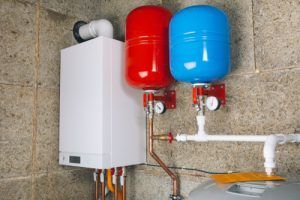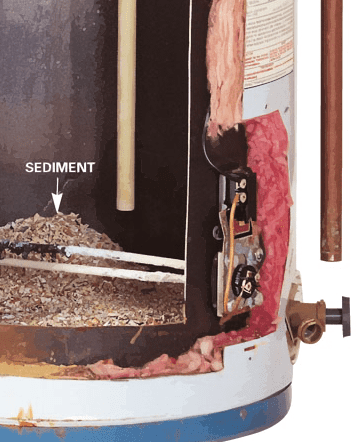Nearly everybody is bound to have their unique perception when it comes to Is Your Water Heater Leaking?.

A hot water heater is among one of the most crucial standard devices that can be found in a house. With hot water heater, you don't require to undergo the tension of heating water by hand every single time there is a requirement to take a bath, do the laundry, or the recipes. There is constantly a possibility that your water heater would certainly act up as with most mechanical gadgets.
It is essential to keep in mind any type of little malfunction as well as tackle it rapidly before points get out of hand. A lot of times, your water heater begins to malfunction when there is a build-up of sediments as a result of continual use. As a safety measure, routine flushing of your hot water heater is recommended to stop sediment build-up and stop functional failure.
Usual water heater emergency situations as well as just how to deal with them
Leaking hot water heater tank.
A leaking storage tank could be an indicator of corrosion. It can create damage to the floor, wall as well as electrical tools around it. You could also be at risk of having your home swamped. In this situation, you ought to shut off your hot water heater, permit it to cool, and also carefully look for the resource of the trouble. Sometimes, all you require to do is to tighten up a couple of screws or pipe connections in cases of small leakages. If this doesn't function and the leakage continues, you could need to use the solutions of a professional for an ideal substitute.
Changing water temperature.
Your hot water heater can begin creating water of various temperature levels typically ice cool or hot warm. In this circumstance, the first thing you do is to guarantee that the temperature level is set to the desired degree. If after doing this, the water temperature level maintains changing during showers or various other activities, you may have a defective thermostat. There might be a demand to replace either the home heating or the thermostat unit of your water heater.
Too little warm water
It might be that the water heating system can not support the warm water demand for your home. You could upgrade your water heating unit to one with a larger capability.
Stained or odiferous water
You need to understand if the problem is from the tank or the water source when this occurs. You are certain that it is your water heating system that is defective if there is no amusing smell when you run chilly water. The stinky water can be brought on by rust or the build-up of microorganisms or debris in the water heater storage tank. Once you notice this, you can try flushing out your storage tank or changing the anode if the problem persists. The function of the anode is to clean out bacteria from your tank. Given that the anode pole replacement needs a thorough knowledge of your water heating unit, you will need the aid of a professional.
Verdict
Some property owners ignore little caution and also minor faults in their water heater device. This only causes further damage and also a possible full breakdown of your home appliance. You need to handle your hot water heater mistakes as soon as they come up to prevent even more expenditures and unneeded emergency problems.
With water heaters, you don't need to go through the stress of home heating water manually every time there is a demand to take a bathroom, do the washing, or the meals. Your water heating unit might begin producing water of different temperatures normally ice cool or hot warm. It may be that the water heater can not support the hot water need for your home. If there is no funny smell when you run cool water, then you are particular that it is your water heating unit that is malfunctioning. The stinky water can be created by rust or the buildup of germs or debris in the water heater container.
9 COMMON CAUSES OF WATER HEATER LEAKS
Why Is My Hot Water Heater Leaking?
Old Water Tank
Just like with any other household appliance, water tanks wear down as they age. Older water tanks are more susceptible to leaks and lower water retention. Generally, a leaking water tank results from rust buildup that causes internal corrosion. As the inside of the tank corrodes, cracks form that allow water to escape. You can patch the cracks to buy some time, but this is only a temporary fix. Eventually, you’ll need a new unit.
Drain Valve
You can use the drain valve on your water heater to empty and clean the tank. This component can become loose as it encounters continuous usage throughout the years. If your hot water heater is leaking, the source of the issue may be a loose drain valve. You may notice a mild water leak due to small openings that weren’t there before. Sometimes a simple tightening will do the trick, but if the valve is loose at the base, you will need to replace it.
High Pressure
Your water heater will naturally create pressure as it increases the water’s temperature. But too much pressure can cause problems. If excess pressure can’t escape the unit properly, water starts to leak through any cracks that are present.
Malfunctioning Temperature & Pressure Relief Valve
The problem above may result from a malfunctioning pressure relief valve. When the internal pressure of your water tank gets too high, the pressure relief valve allows steam to escape the unit and return to a stable temperature. Sometimes the valve just gets loose and needs to be tightened, but if it’s broken, you need to replace it with a new one.
Inlet & Outlet Connections
During the heating process, cold water comes into the tank through the inlet connection, and hot water exits through the outlet connection to travel through the pipes in your home. As with drain and pressure relief valves, these connections can loosen over time and cause a water heater leak. If this happens, either try to tighten the connections yourself or call a professional plumber.
Tank Interior
Water heaters have two “shells,” an internal shell that contains the water and an external shell that insulates the internal shell. While water leaks coming from the external shell are easy to spot because it’s just covered by a thin metal layer, they’re harder to catch in the internal shell because it’s covered by two layers of material.
Collection of Sediment
Here’s why regular water heater maintenance is so important. If you neglect cleaning the tank, sediment builds up at the bottom and eventually causes the unit to crack. The formation of cracks in the tank can cause a mild to severe water heater leak in your home. If the tank starts leaking, all you can do is replace it entirely. So do yourself a favor and clean the tank a few times a year to prevent this from happening. Your wallet will thank you later.
https://www.horizonservices.com/about-us/blog/9-common-causes-of-water-heater-leaks/

Do you really like more info about Common Hot Water Heater Problems? Create feedback down the page. We will be glad to find out your thoughts about this piece. Hoping to see you back again soon. Do you know anybody else who is interested in the subject? Do not hesitate to promote it. Thank you for your time. Kindly check up our blog back soon.
Burst issue? Contact.